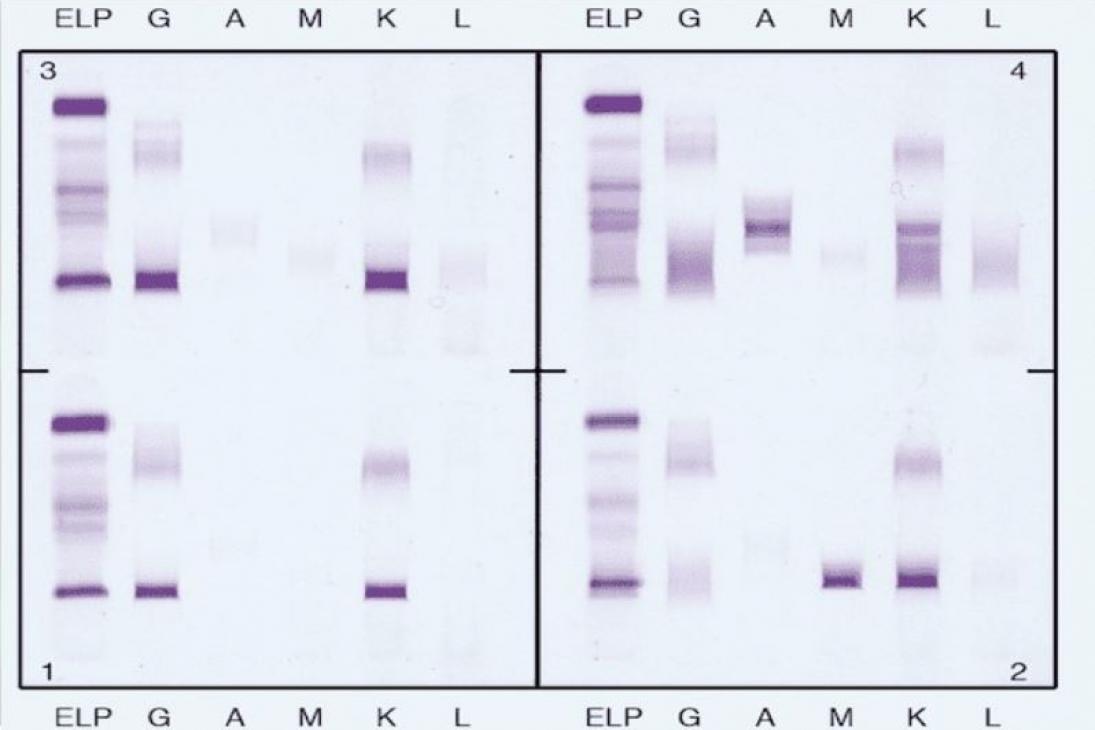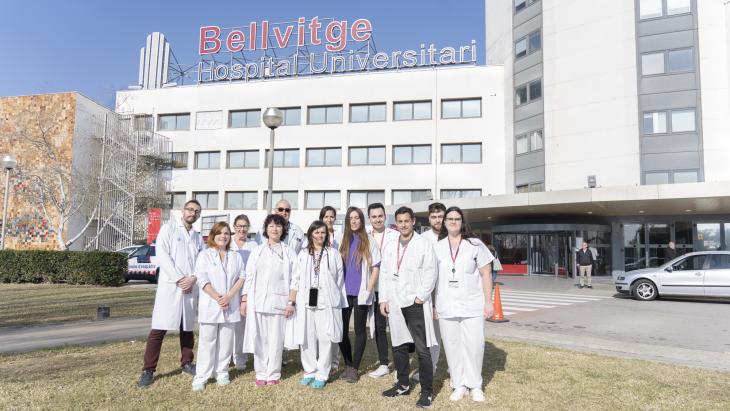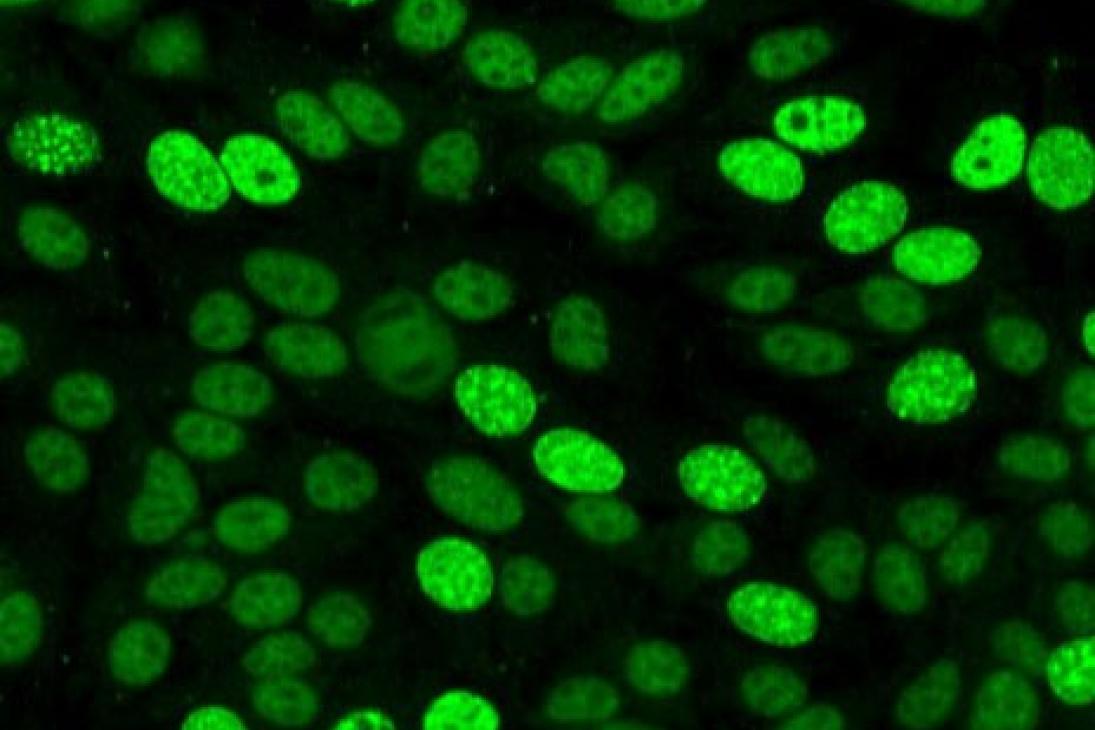This segment focuses on investigating the humoral components of the immune system, primarily studying immunoglobulins and elements of the complement system. Additionally, it involves the determination of acute phase reactants and other proteins.
- Study of monoclonal gammopathies: proteinogram, immunofixation, immunotyping, quantification of the monoclonal component, free light chains.
- Study of quantitative alterations of immunoglobulins, present in humoral and combined immunodeficiencies, and due to overproduction (myeloma, hyper IgG4, allergy) by means of nephelometry and fluoroenzymeimmunoassay.
- Study of qualitative alterations of immunoglobulins, such as cryoglobulins, the study of monoclonal bands by immunotyping and immunofixation and quantitative monitoring of the monoclonal component.
- Study of multiple sclerosis markers, with determination of IgG oligoclonal bands using isoelectroencephalography.
- Study of the complement system: C3, C4, Factor B, C1-inhibitor, C1q, CH50.
- Study of the vaccinal response for the diagnosis of primary immunodeficiency of anticoagulants: serum concentration of specific IgG anticoagulants against T-independent and T-dependent antigens.
- Studies in allergy:
o IgE specific to allergy extracts and recombinant allergens (fluoroenzymeimmunoassay).
o IgG specific to fungal and avian antigens (fluoroenzymeimmunoassay).
o Multiparametric analysis of specific IgEs (ISAC).
o Basophil activation test (flow cytometry).
o Serum tryptase.



